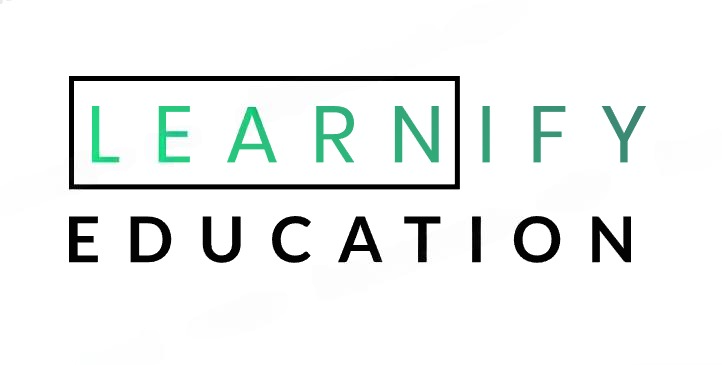Flexible Learning Schedule
Students can access course materials, participate in discussions, and complete assignments at their own pace and convenience.














Flexible Learning Schedule
Students can access course materials, participate in discussions, and complete assignments at their own pace and convenience.
Remote Access
Unlike traditional programs that require physical attendance, distance education allows students to study from anywhere, reducing the need for commuting or relocation.
Varied Learning Resources
Educational materials such as e-books, online lectures, video tutorials, and interactive modules are provided. These resources are accessible through online platforms or sent via mail.
Self-Paced Learning
Students have the ability to set their own study pace, which helps in managing their time effectively and accommodating their personal learning style.
Virtual Interactions
Communication with instructors and peers occurs through online forums, emails, and virtual classrooms, fostering a learning environment despite geographical distances.
Assessment Methods
Evaluations are conducted through online exams, assignments, and projects, which are submitted electronically or through postal services.

Accessibility
Students from remote areas or those who cannot attend traditional institutions can still pursue a degree.
Cost-Effectiveness
Distance education programs are often more affordable than conventional on-campus programs, with lower tuition fees and reduced additional costs (such as transportation and accommodation).
Convenience
The ability to study from home and at one's own pace makes it easier to balance academic pursuits with professional and personal responsibilities.

BA Distance Education is a versatile educational option that caters to various needs and circumstances. Here are some key situations when opting for BA Distance Education might be the most suitable choice:

| Type of BA Education | Description | Key Features | Pros | Cons |
|---|---|---|---|---|
| Regular/Full-Time | Traditional in-person classes with a fixed schedule. | Structured timetable, campus-based learning, direct interaction with instructors. | Comprehensive learning environment, networking opportunities, immediate feedback. | Less flexibility, requires physical attendance, often higher costs. |
| Part-Time | Classes held during evenings or weekends, allowing for work or other commitments. | Flexible scheduling, fewer hours per week compared to full-time programs. | Balances work and study, often lower costs than full-time. | Longer duration to complete the degree, potentially more challenging to manage time. |
| Online | Entirely virtual, using online platforms for lectures, assignments, and exams. | Study from anywhere, asynchronous classes, interactive digital tools. | Highly flexible, accessible from anywhere, often lower costs. | Requires self-discipline, reliance on technology, limited face-to-face interaction. |
| Distance Education | Learning through correspondence or online resources without requiring regular physical attendance. | Self-paced learning, correspondence with tutors, occasional in-person exams or workshops. | Great for remote learners, flexible study pace, cost-effective. | Less interaction with peers and instructors, potential delays in feedback. |
| Blended/Hybrid | Combines online learning with occasional in-person classes or workshops. | Mix of online flexibility with some traditional classroom interaction. | Balanced approach, combines benefits of both online and in-person learning. | Requires attendance at certain times, may involve additional logistical planning. |
| Accelerated | Intensive programs that allow completion of the degree in a shorter time frame. | Fast-paced coursework, often full-time with a condensed schedule. | Quick completion, immersive learning experience. | Intense workload, may require significant time commitment. |
| Modular | Breaks the curriculum into smaller, manageable modules or units. | Flexibility to study modules independently, often online. | Allows focused learning, flexible scheduling. | May require coordination of multiple modules, varying start times. |
| College Name | Description | Key Features |
|---|---|---|
| LPU (Lovely Professional University) | Offers a range of specializations in BA with strong online support and resources. | Comprehensive online learning platform, diverse specializations, robust student support. |
| Chandigarh University | Provides various BA programs with flexible learning options. | Flexible scheduling, wide range of specializations, strong faculty support. |
| IGNOU (Indira Gandhi National Open University) | A leading institution in distance education with extensive experience and diverse programs. | Large variety of courses, extensive network of study centers, affordable. |
| Sikkim Manipal University | Offers BA programs with flexible learning options and comprehensive course materials. | Flexible learning formats, interactive online resources, support services. |
| Amity University Online | Features innovative online education methods and strong academic support. | Advanced digital learning tools, interactive classes, personalized support. |


The subjects in a BA Distance Education program typically cover a broad range of disciplines, providing a well-rounded education in the arts and humanities. Here’s an overview of the core subjects you might encounter during the course:

To enroll in a BA Distance Education program, candidates typically need to meet the following eligibility criteria:


BA Distance Education can be a valuable option depending on your personal and professional goals. Here’s why it might be worth considering:
Flexibility
deal for working professionals, parents, or those with other commitments, as it allows you to study at your own pace without attending regular classes.
Affordability
Generally more cost-effective than traditional on-campus programs, making higher education accessible to a broader audience.
Accessibility
You can study from anywhere, making it convenient for those living in remote areas or who are unable to relocate.
Career Advancement
Provides the opportunity to enhance your qualifications and skills while continuing to work, which can lead to better job prospects or promotions.
Accreditation
Many distance education programs are offered by reputable institutions, ensuring that the degree is recognized and respected.
Personal Growth
Encourages self-discipline, time management, and independent learning, which are valuable skills both academically and professionally.












